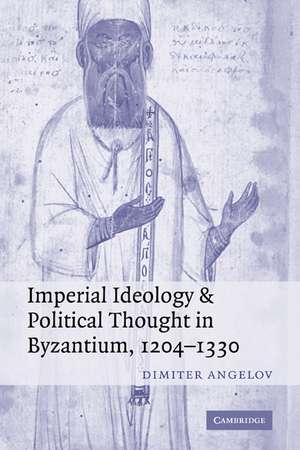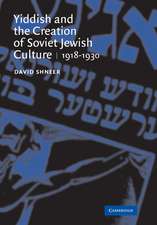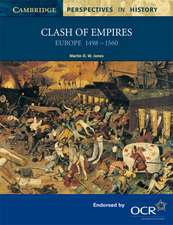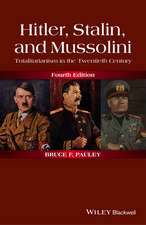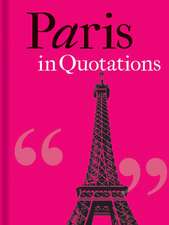Imperial Ideology and Political Thought in Byzantium, 1204–1330
Autor Dimiter Angeloven Limba Engleză Paperback – 15 iun 2011
| Toate formatele și edițiile | Preț | Express |
|---|---|---|
| Paperback (1) | 445.69 lei 6-8 săpt. | |
| Cambridge University Press – 15 iun 2011 | 445.69 lei 6-8 săpt. | |
| Hardback (1) | 872.69 lei 6-8 săpt. | |
| Cambridge University Press – 7 feb 2007 | 872.69 lei 6-8 săpt. |
Preț: 445.69 lei
Nou
Puncte Express: 669
Preț estimativ în valută:
85.28€ • 89.27$ • 70.98£
85.28€ • 89.27$ • 70.98£
Carte tipărită la comandă
Livrare economică 31 martie-14 aprilie
Preluare comenzi: 021 569.72.76
Specificații
ISBN-13: 9780521294386
ISBN-10: 052129438X
Pagini: 474
Dimensiuni: 152 x 229 x 24 mm
Greutate: 0.63 kg
Editura: Cambridge University Press
Colecția Cambridge University Press
Locul publicării:Cambridge, United Kingdom
ISBN-10: 052129438X
Pagini: 474
Dimensiuni: 152 x 229 x 24 mm
Greutate: 0.63 kg
Editura: Cambridge University Press
Colecția Cambridge University Press
Locul publicării:Cambridge, United Kingdom
Cuprins
Introduction; Part I. Official Ideology: 1. Analyzing imperial propaganda; 2. The imperial idea: continuity and change in the imperial image; 3. Rhetorical theories of succession; 4. The ideology of imperial government; 5. The panegyrists as lobbyists; Part II. The Independent Theorists: 6. Tradition and innovation in theoretical texts; 7. Theodore II Laskaris as a political thinker; 8. The critics of the Palaiologoi: fiscal responsibility and elective kingship; 9. The controversy on imperial taxation; 10. Manuel Moschopoulos, Plato, and government as social covenant; Part III. The Ecclesiastics: 11. The emperor - subject to the church: late Byzantine hierocratic theories; Conclusions.
Recenzii
Review of the hardback: 'Angelov offers a subtle study of the interplay between official pronouncements about right political order and those ideas about imperial rule that developed in semi-official or independent contexts. To this end, he deploys an astonishing spectrum of sources from a century-and-a-half of Byzantine history, including preambles (prooimia) to imperial charters, orations composed for public performance at the imperial court, mirrors of princes, philosophical treatises and rhetorical exercises.' The Anglo-Hellenic Review
Descriere
This study investigates Byzantine imperial ideology, court rhetoric and political thought after the Latin conquest of Constantinople in 1204.
